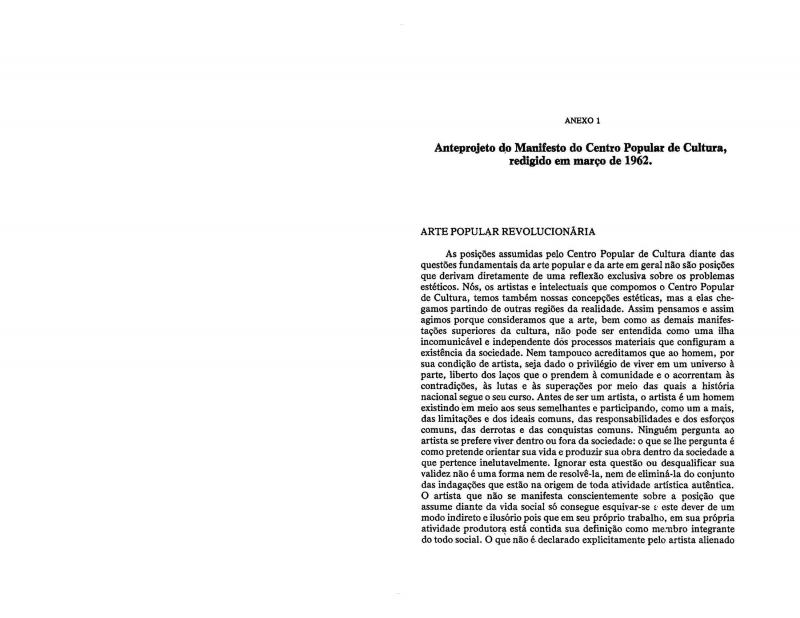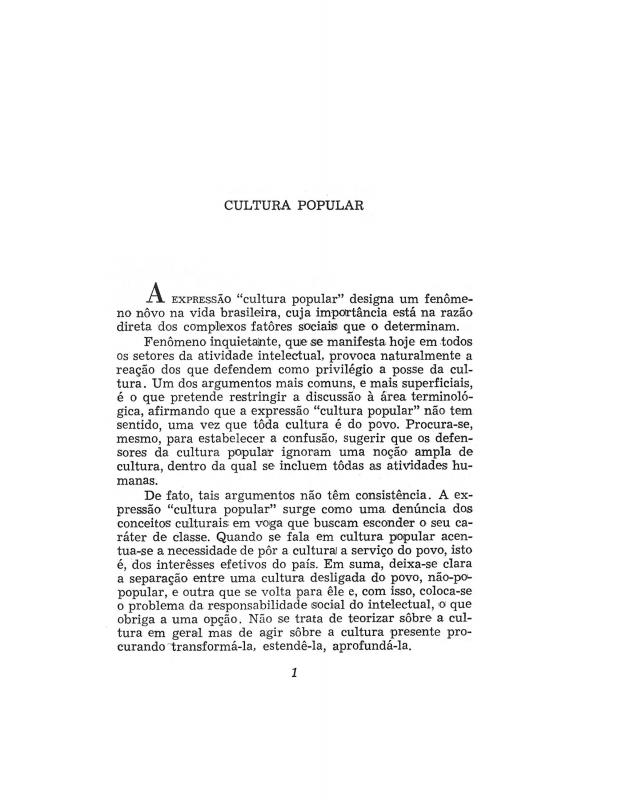In this article, poet and translator Sebastião Uchoa Leite (1935–2003) maps out a theory of the different meanings that the term “popular culture” has assumed in Brazil, particularly in the early sixties. He identifies the ideology at play in the polarization between “progressive” and “reactionary” readings, a confrontation heightened by the Centros Populares de Cultura (CPCs). Despite their opposing approaches, the two artistic positions shared, in Uchoa Leite’s view, the longing to have an impact on the country’s reality.
The first Centro Popular de Cultura (CPC) started in Rio de Janeiro as part of the União Nacional dos Estudantes (UNE). It opened in 1961, at the beginning of the brief term of President João Goulart (1961-64). The CPC was a gathering place for artists and intellectuals working in theater, dance, film, literature, and the visual arts who were dedicated to social transformation through socially committed art bound to the people. Though short-lived because of the CIA-backed military coup that took place in 1964, the original CPC inspired the creation of similar organizations throughout Brazil; the pedagogical aims of those organizations included the popularization of artistic practices and production.
On this topic, see as well Carlos Estevam Martins’s “Anteprojeto do Manifesto do Centro Popular de Cultura” (doc. no. 1110413) and Ferreira Gullar’s “Cultura posta em questão” (doc. no. 1110364).


